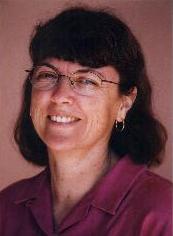Warning: Spoilers ahead...
****
****
****When I began writing Return of the Guardian King, I thought I was going to do much more with Kiriath. Then the story went off in ways I didn't anticipate. Now that it's done and I can sit back and consider, I see that it's because the story is not about Abramm's relationship with Kiriath (which had rejected him, remember) or with Chesedh, but with Eidon. It's part of the testing that comes to mature believers, such as Job, who lost all he had and then gained back double. So Abramm lost all he had, as well, including his kingdom, then gained back two kingdoms...
Also much of what happened to Leyton and to Ronesca and to Gillard and the Kiriathans, had to do with 1) the fact that both Leyton and Ronesca really had rejected Eidon and His ways and were being disciplined for that, 2) Gillard was even more hard-hearted in regards to his rejection of Eidon and 3) the principle expressed in Is 41:11,12 "Behold, all those who are angered at you will be shamed and dishonored; Those who contend with you will be as nothing and will perish. You will seek those who quarrel with you, but will not find them. Those who war with you will be as nothing, and non-existent."
The Kiriathans had rejected their king and his Terstan beliefs and accepted the false religion of the Mataio instead. As a result, they came under discipline. The neighboring country, Chesedh, had not accepted the Mataio and so was still protecting truth. Eventually they even accepted Maddie as queen, and finally Abramm.
An interesting (to me, at least) side story to all this is that I came up with the name for Chesedh when I started The Light of Eidon, years ago. It's a Hebrew word which I chose deliberately at the time. But then I forgot the meaning and, as years passed, came to mistakeningly believe that it meant wisdom (which is actually chokmah). So I wrote the book and only at the end did I find out that Chesedh actually means grace. I love that, because it is so right that Abramm's story should have ended in "Grace."
Karen

